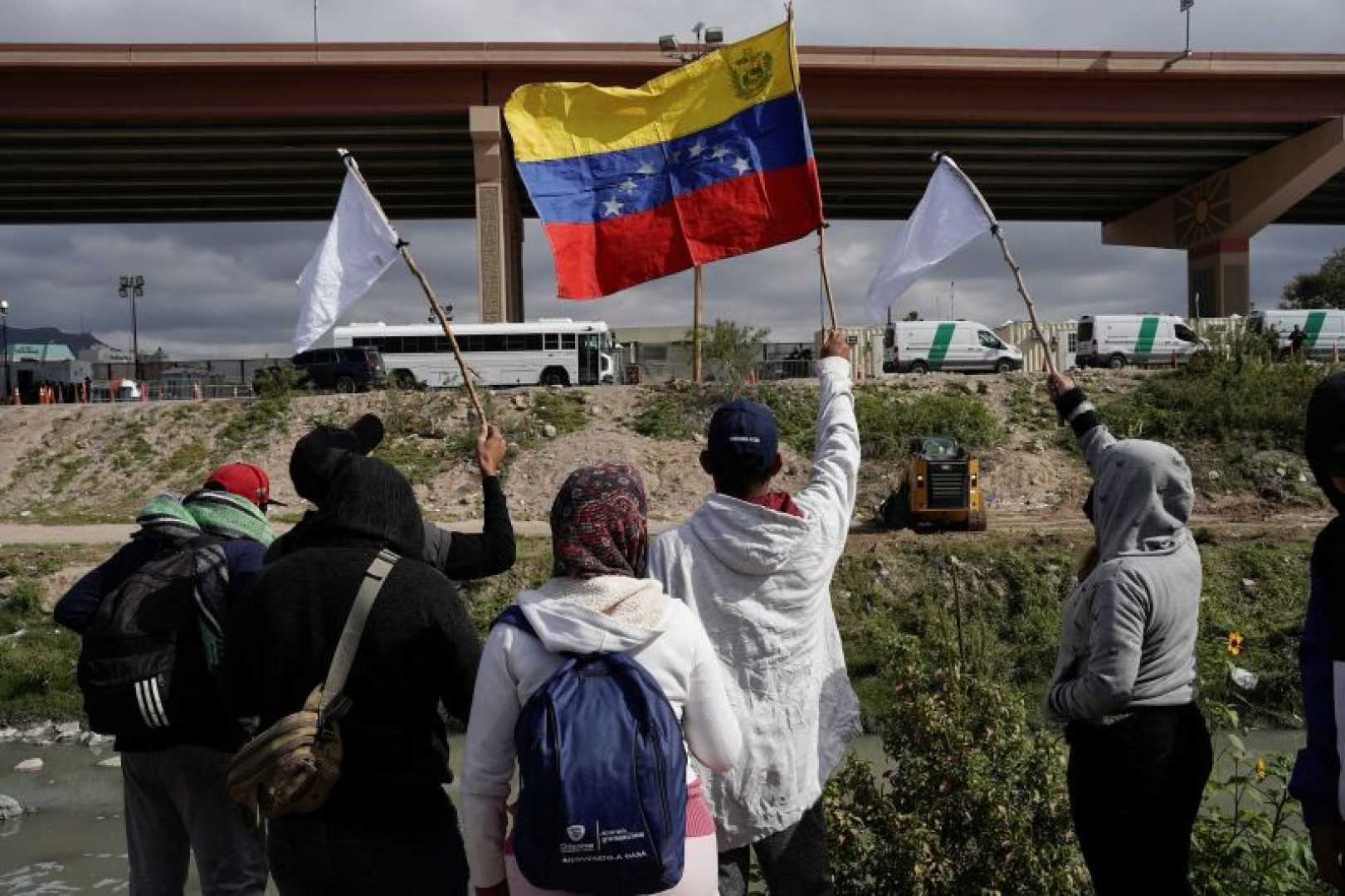World
Venezuelan Couple Faces Uncertainty as Trump Threatens CBP One Asylum System

MEXICO CITY, Mexico – Jorge Luis Jiménez and his wife, Milexsa, fled Venezuela last summer, escaping the oppressive regime of Nicolás Maduro. After a grueling journey through the Darién Gap and Central America, they reached Mexico City, where they secured jobs and waited months for a coveted appointment through the U.S. government’s CBP One app to legally enter the United States. Now, their future hangs in the balance as President-elect Donald Trump vows to dismantle the system that allowed them to seek asylum.
The CBP One app, launched in 2020 and expanded under the Biden administration, offers 1,450 daily appointments for migrants to present themselves at U.S. ports of entry and begin the asylum process. Jiménez and Milexsa, like thousands of others, relied on the app to avoid dangerous illegal crossings. However, Trump has pledged to end the program, warning migrants to “get ready to leave” and threatening to revoke legal permissions for those already in the U.S.
“That would be a really serious, serious thing to do to someone,” Jiménez said solemnly. “We did everything the U.S. asked of us.”
Since its inception, nearly 919,000 migrants have entered the U.S. through the CBP One system, according to internal government reports. The app has become a lifeline for asylum seekers, particularly from crisis-stricken countries like Venezuela and Haiti. Yet, demand far exceeds supply, with migrants attempting over 166 million times to secure an appointment in the past two years.
Trump’s plans to scrap the program have sparked fears among migrants and advocates. “It would be the most heinous act of betrayal of trust,” said Tom Cartwright of Witness at the Border. “These vulnerable people did everything this country asked them to do.”
For those still waiting in Mexico, the stakes are even higher. Jesús de la Torre of the Hope Border Institute noted that migrants face violence, extortion, and kidnapping while awaiting their appointments. “They are not safe until they cross to the U.S. side,” he said.
At the Casa de Esperanza migrant shelter in Sonoyta, Mexico, 140 people from Venezuela, Honduras, and Colombia wait for their CBP One appointments. Some have been waiting for eight months. “There’s a lot of rumors that the app will close, but I can’t give up hope,” said a 55-year-old mother from Guanajuato, Mexico, who asked to remain anonymous for her safety.
The Biden administration has defended CBP One as a way to reduce illegal crossings and provide a legal pathway for asylum seekers. Migrants admitted through the app can apply for work permits and asylum, contributing to the U.S. economy. However, critics like Trump and his allies argue the system facilitates illegal immigration.
“CBP One is a Machiavellian system that guarantees cheap labor for the U.S. but few rights for migrants,” said Aaron Flores Morales of Casa de Esperanza. “Trump may deport people to demonstrate his power, but canceling the app could collapse the U.S. economy.”
Legal experts warn that revoking parole for those already in the U.S. would be unprecedented and legally complex. “The law would require case-by-case reviews,” said Muzaffar Chishti of the Migration Policy Institute. “But Trump could discontinue the app on day one, leaving thousands in limbo.”
In Denver, Colorado, community efforts have helped over 4,400 migrants apply for work permits, including 3,700 who entered through CBP One. Jon Ewing, a spokesperson for the mayor’s office, said revoking these protections would be “antithetical to our values.”
As the Trump administration prepares to take office, the fate of CBP One and the migrants who relied on it remains uncertain. For Jiménez and Milexsa, the dream of a safe and stable life in the U.S. could be shattered overnight.












